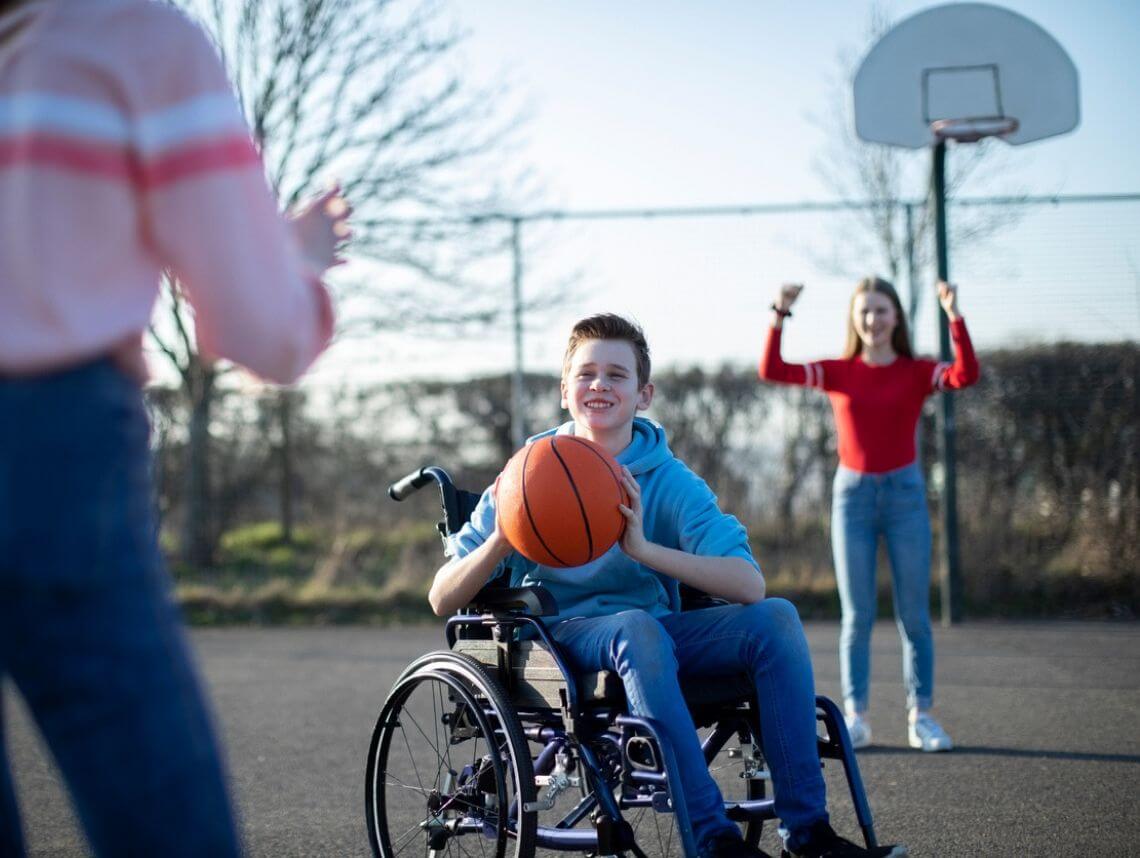Spina Bifida (SB) begins during early pregnancy and occurs when the spine and spinal cord don’t form properly. With proper exercise and care during their newborn, infant, and toddler phases—and depending on the severity of your child’s SB—your child can still reach their full potential.
Caring for Your Child at Home
It’s important that children with Spina Bifida get regular physical activity. From doing physical therapy exercises at home to playing outside for 60 minutes, staying active helps your child develop and strengthen their muscles. Just make sure to limit their sun exposure, since children with Spina Bifida are prone to developing burns, sores, or blisters.
Some mobile and physical activities may include:
- Playing with friends
- Rolling or walking in your neighborhood
- Visiting a park or recreational area (including wheelchair-accessible playgrounds)
- Attending summer camps or recreational facilities
- Joining a sports team for people with or without disabilities
Does Your Child Need Home Care Services?
Depending on the severity of your child’s Spina Bifida, it can be overwhelming attending to all your child’s needs. The good news is that you don’t have to do it alone. Home care services provide a highly professional to help you care for your child. They’ll send nurses or physical therapists to help your child with their daily exercises, physical activities outside, or general health right in your own home. You may need home care services if:
- You struggle to find time to exercise your child
- You have physical limitations that prevent you from playing outside with your child
- Your work schedule prevents you from carefully monitoring your child’s progress
- You’re feeling overwhelmed and need help caring for your child
Government Programs That Can Assist With Your Child’s Healthcare
If you currently don’t have health insurance or the financial resources necessary to pay for home healthcare, there are federal and state programs that provide some assistance based on eligibility, such as Medicare’s Children’s Health Insurance Program (CHIP) and Florida KidCare.
Questions to Ask Before Your Child’s First Day of School
Transparency and awareness are important for keeping your child safe while at school. By thinking through your child’s needs and working with your child’s teachers and school faculty members, you can help minimize incidents and improve your child’s chances for success in school. Before your child begins their first day, make sure you know the answers to these questions:
- Is the school wheelchair accessible?
- What is the school policy on bathroom breaks?
- What skincare options is the school nurse able to provide?
- What is the school policy for allergies?
How to Prepare Your Child for School
School provides opportunities for your child to develop new hobbies, become more responsible, strengthen or learn social skills, expand their knowledge, and more. You can help your child prepare by:
- Helping them identify wheelchair-accessible ramps (if applicable)
- Setting rules for sun exposure during recess
- Providing them with skincare options (sunscreen, hats, allergy medications, etc.)
- Identifying how long is too long to sit or lie in a single position
School can also be a difficult time where children with SB—especially those with shunts—experience problems with learning, struggle to pay attention, work more slowly, become restless, or lose things. That’s why it’s crucial that you monitor your child’s progress early and know your options.
Education Options for Children with Spina Bifida
Two options to help your child with their school development include the Individualized Education Program (IEP) and a 504 Plan.
An IEP is a legal document that makes your child eligible for special education classes. These classes are designed to give your child the extra assistance they need to develop their mental and social skills.
If your child doesn’t qualify for an IEP, then you can request a 504 plan. This plan is used for students that may not be eligible for special education courses, but still need assistance getting to the same level as their peers.
Contact Care Options for Kids for Pediatric Home Health Care Services
If you’re acting as a caregiver for a child with Spina Bifida, let us help you. At Care Options for Kids, we have an entire team of experienced caregivers to ensure the wellbeing of your child.
If you are considering pediatric home health care services, contact the caring staff at Care Options for Kids. Call today at (888) 592-5855.






